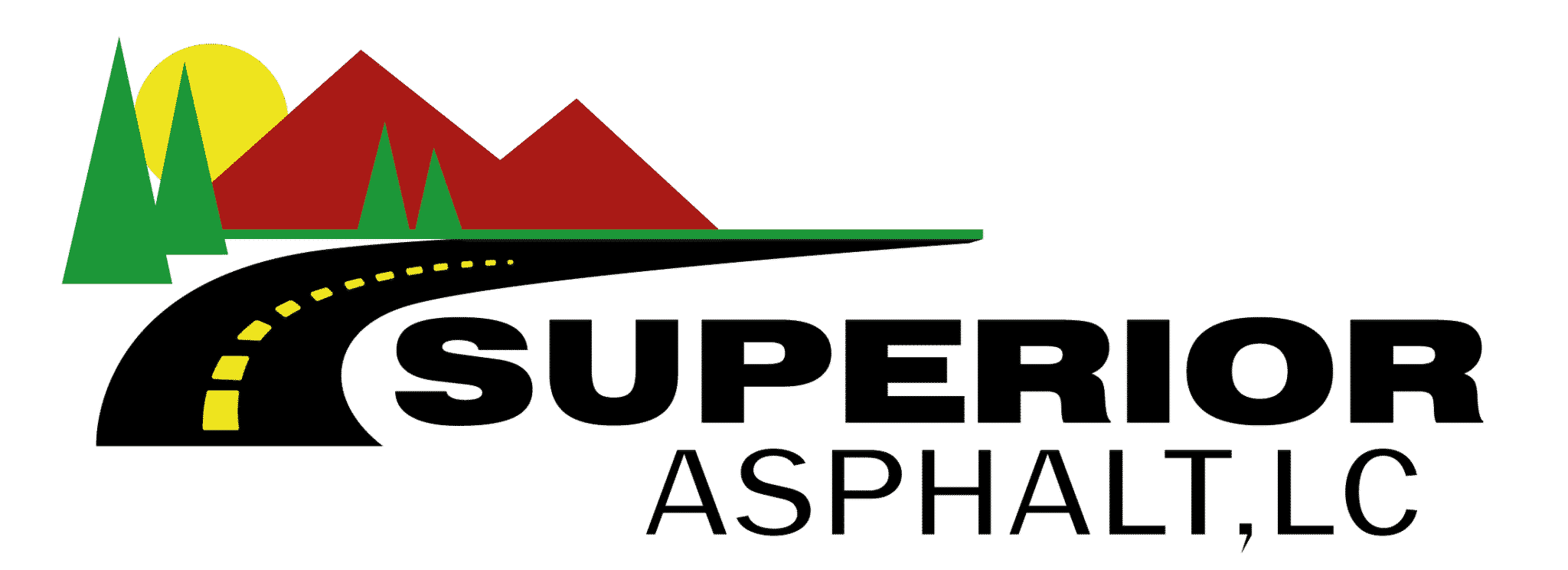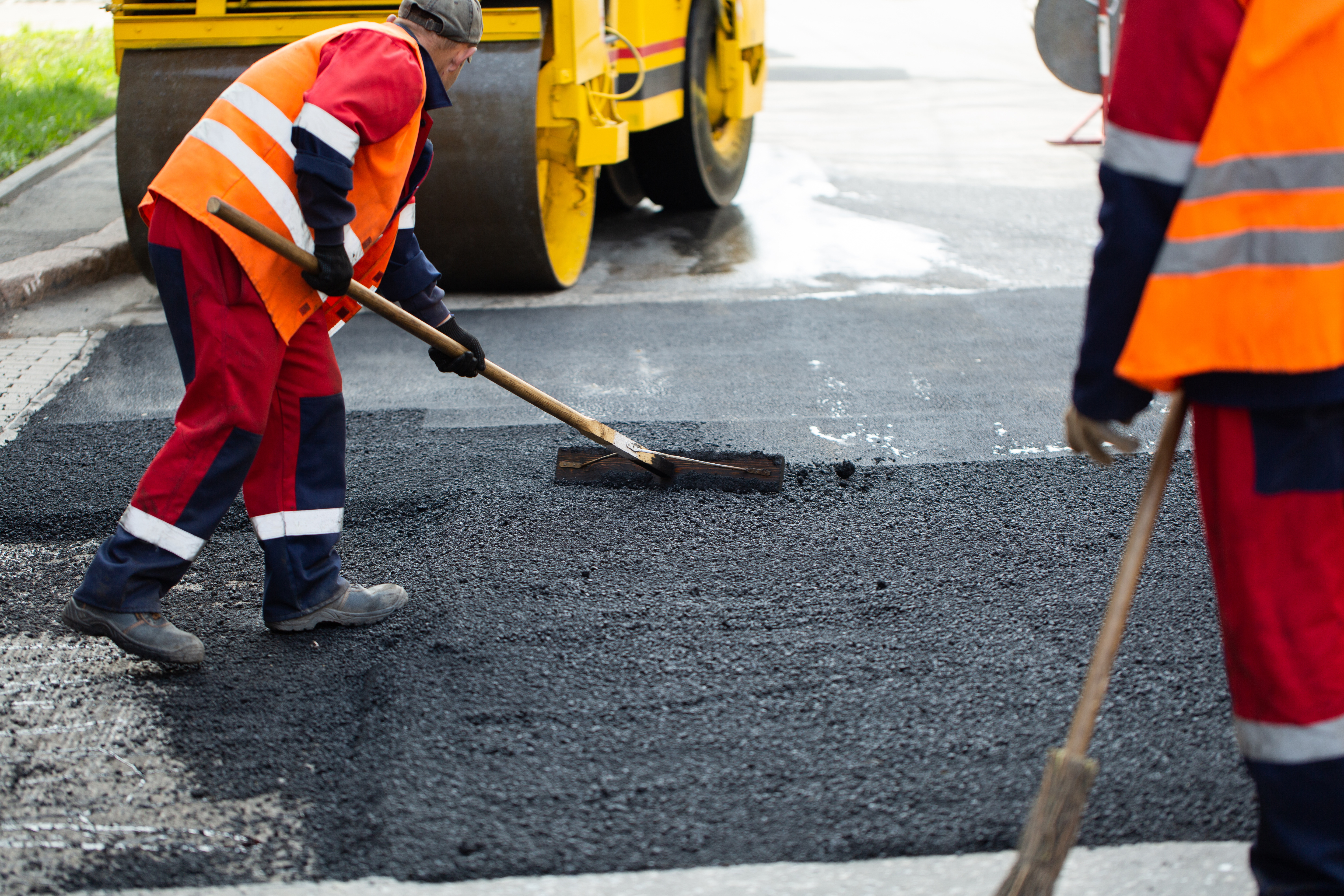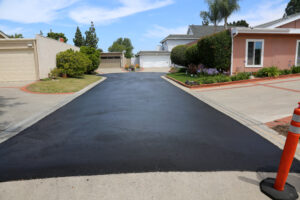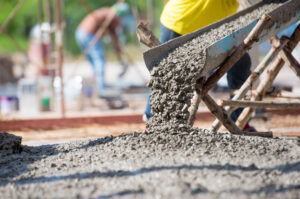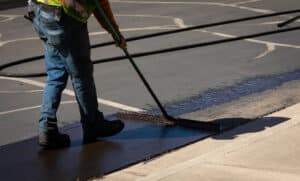If you are a property owner, it’s important to understand the factors that influence asphalt
pricing — from labor and transportation costs to the type of materials. With this in mind, how exactly do you make sure your project stays within budget when planning for resurfacing or repair work involving asphalt? In this blog post, we’ll take a look at some of the key factors that determine the cost of an asphalt job so that you can better manage your property.
New Asphalt Paving Cost Factors
Let’s break down the different factors into manageable sections to get a handle on how new asphalt paving is priced. These factors play a large role in determining the overall cost of your asphalt project.
Material Costs: This is the price of the asphalt itself and is largely dependent on the crude oil prices. The type and amount of asphalt will also have a large effect on the overall cost of your project. See below for more information on asphalt material costs.
Preparation and Grading: Before laying down the asphalt, the ground must be properly prepared. This includes removing old asphalt, grading for proper water drainage, and ensuring a solid base. The cost of this will vary depending on the size of the project, but it is important to consider, especially if you need to remove old asphalt.
Base Material: A solid base is essential for asphalt. The type and amount of base material required can vary. Commonly used are sand and gravel. Consider the cost of the base material as well as its availability in your area. A stronger base will have long-term benefits, often keeping your asphalt in better condition over time.
Labor Costs: Depending on the region, labor rates can vary. More experienced contractors might charge more, but their work might also last longer. Also, the size and requirements of a project can have a large impact on labor costs. Below, we will explain how labor and preparation costs can greatly affect the cost of a project.
Project Size and Scope: Larger projects typically cost less per square foot than smaller projects due to economies of scale. If the surface has irregularities or hard-to-access spots, the price might increase.
Existing Pavement: Whether or not the surface has been paved before can greatly impact the cost. For a surface that has not been paved before, preparation is much more intensive, requiring dirt removal to replace with 6 inches of road base. Then, it must be leveled and compacted before paving can start.
Current Damage: If the current asphalt surface is damaged, then this can add to the cost as well. With damaged asphalt, it must first be removed before paving. Additionally, if the sub-base has failed, this may need to be replaced as well.
Additional Features: Costs may rise if additional features like striping, signage, or adding curbs are required.
Materials for New Asphalt
When planning an asphalt project, it’s important to know about the different types of asphalt mixes and how they affect your costs. The most common ones you’ll come across are hot mix, warm mix, and cold mix asphalt.
- Hot Mix Asphalt (HMA): This is the most commonly used type and is ideal for all types of asphalt surfaces. It costs around $0.75 – $2.00 per square foot, depending on the quality. Its durability makes it perfect for heavy-traffic areas.
- Warm Mix Asphalt (WMA): WMA is similar to HMA but is produced at lower temperatures, which reduces greenhouse gas emissions. It’s slightly more expensive than HMA but has benefits like lower fuel consumption.
- Cold Mix Asphalt: This is one of the most cost-effective options for small projects and patchwork. It’s produced and used at ambient temperatures, making it ideal for emergency repairs.
The size of a project directly impacts how much asphalt is needed, which in turn affects the overall cost. When dealing with larger projects, you can expect to require more asphalt, which can significantly drive up the costs. However, the good news is that the cost per square foot often decreases thanks to economies of scale.
Another important factor to consider is the thickness of the asphalt surface. The thicker the layer of asphalt, the more material you’ll need, which means higher costs. For instance, residential driveways usually need a thickness of about 2 to 3 inches of asphalt, while commercial parking lots may require a thicker surface.
Labor and Preparation Costs for New Asphalt
Labor and preparation costs significantly influence the total expense of a new asphalt project. Before laying the asphalt, the site requires preparation, which includes clearing, excavation, and grading, costing around $1 to $2.50 per square foot. Labor costs for laying asphalt typically range from $2 to $6 per square foot. If an existing surface needs removal, this can add $1 to $2 per square foot. Furthermore, if the ground underneath is unstable, a new base might be necessary, adding cost to the project.
Additionally, location and accessibility can also impact labor and preparation costs. If the project site is challenging to access or is located in a remote area, this might affect transportation costs for materials and equipment, adding to the overall expenses.
Asphalt Maintenance Cost Factors
Maintaining asphalt properly can add years to the lifespan of your asphalt; however, it comes with a cost. There are a few things to consider when it comes to expenses, such as the age and condition of the existing asphalt, the size and complexity of the project area, the availability and cost of materials, and of course, the cost of labor. If you neglect regular maintenance, you might end up with bigger repairs and higher expenses down the road.
Regular Inspection and Cleaning: Regularly inspecting the asphalt surface helps in the early detection of issues, potentially saving on future repair costs. While this usually does not cost anything, it can go a long way in preserving your existing asphalt. Regular cleaning is another simple way to keep your asphalt from decaying over time.
Sealcoating: Applying a sealcoat protects the asphalt from UV rays, chemicals, and water penetration. For the best results, it’s recommended to sealcoat new asphalt within the “magic window” of 6-12 months after its first installation. This gives enough time for the bitumen to cure and form a strong bond with the aggregate. After this, you should seal the asphalt every 2 to 3 years to get the most out of your pavement. The cost of sealcoating is usually between $0.08 – $0.30 per square foot.
Asphalt Repairs: Over time, asphalt can develop small cracks. Filling these cracks early can prevent water infiltration and further damage. If these cracks are not addressed, potholes can form and become a major issue. The cost usually depends on the size and number of cracks and potholes but typically ranges from $2 to $5 per square foot.
Drainage Maintenance: Proper water drainage is vital to prevent water damage. Maintaining drainage systems can sometimes be expensive, but it is worth it to prevent water from getting inside your asphalt.
Material Costs for Asphalt Maintenance
The cost of asphalt maintenance materials can vary depending on the specific needs of your pavement. Among the materials, you’ll commonly find sealcoating and cold mix asphalt. As mentioned, sealcoating costs can range from $0.08 to $0.30 per square foot. On the other hand, cold-mix asphalt falls in the range of $0.15 to $0.40 per square foot. Cold mix asphalt is typically used for small repairs and patching, especially when temperatures are too extreme for other types of asphalt. However, it’s unsuitable for long-term projects since it can’t handle heavy traffic and will degrade over time.
Labor Costs to Maintain Existing Asphalt
Labor costs are a significant component of asphalt maintenance expenses. These costs can fluctuate based on a variety of factors, including the complexity of the maintenance work, the size of the area to be serviced, and the local market rates for labor. Simple tasks such as patching minor cracks or holes may require less work and hence involve lower labor costs. More complex projects, such as a full-scale resealing or a complete asphalt resurface, will demand more labor hours, resulting in higher costs. Always account for these labor costs when budgeting for your asphalt maintenance.
Get an Asphalt Maintenance Pricing Quote for Your Property
As you can see, both installing new asphalt and maintaining existing asphalt come with
their cost factors. Being aware of these factors and understanding the importance of proper maintenance is key to getting the most out of your investment. Setting up regular maintenance and inspections should be top of mind for anyone looking to ensure that their asphalt paving lasts. At Superior Asphalt, we take pride in providing top-notch materials and asphalt maintenance services, ensuring the longevity of your pavement. Get in touch with us for a property-specific quote today!
